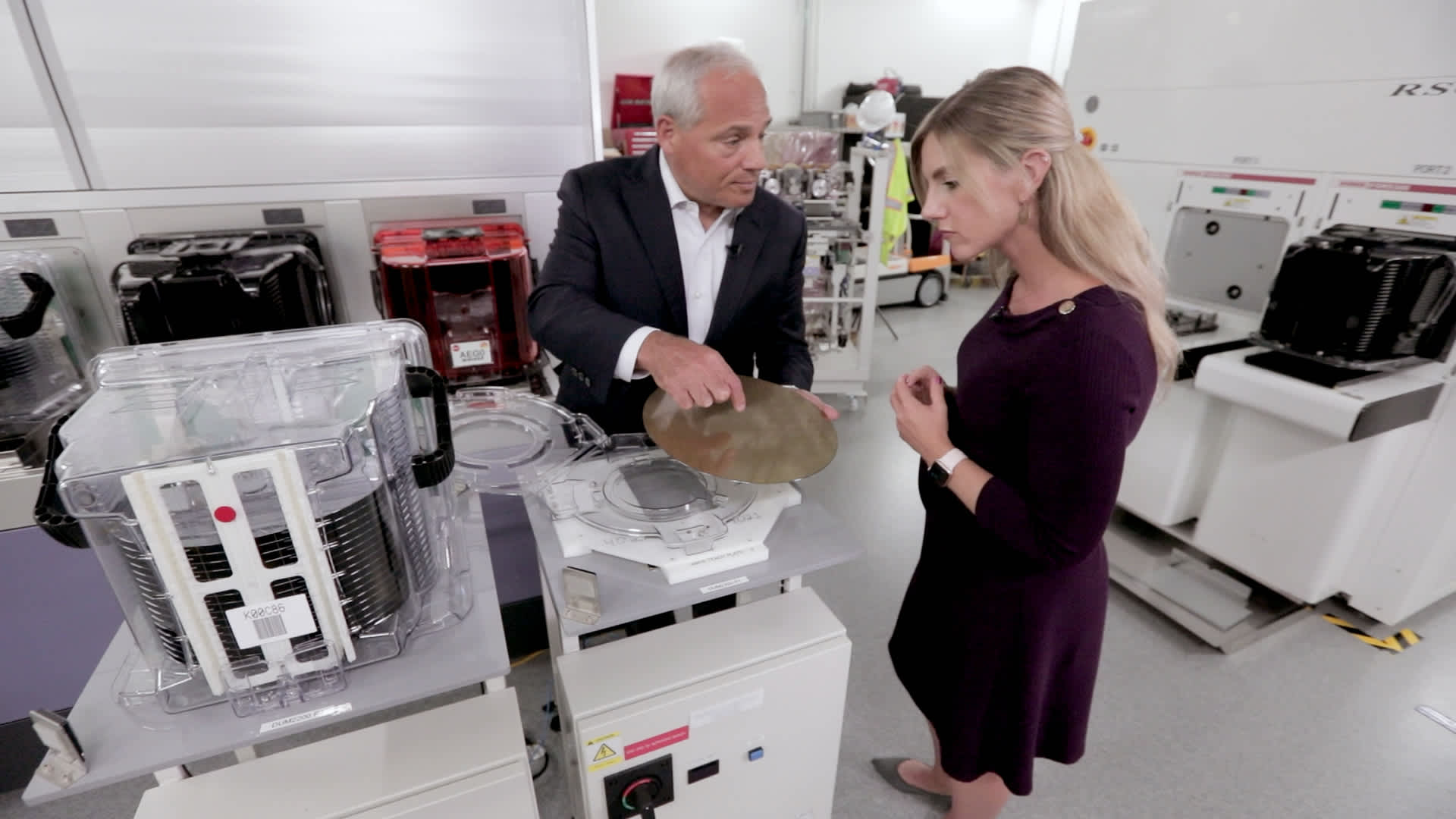However, within the realm of generative AI, GlobalFoundries focuses on manufacturing chips that handle functions like power management, display connections, and wireless capabilities. Caulfield believes that AI will drive the industry to double in size within the next eight years, and GlobalFoundries aims to be at the forefront of this growth.
Five years ago, GlobalFoundries made the strategic decision to step away from producing leading-edge chips, relinquishing that market to Taiwan Semiconductor Manufacturing Company. Today, as tensions and concerns over reliance on TSMC arise due to geopolitical issues, GlobalFoundries finds itself outside the crosshairs. The company has invested approximately $7 billion to expand production in Singapore, Germany, France, and upstate New York.
To gain insight into how the company plans to remain ahead while developing older chips essential for everyday devices, CNBC visited GlobalFoundries’ fabrication plant in Malta, New York. It’s here that the company is adding 800 acres of manufacturing space.
The story of GlobalFoundries begins in 2009 when Advanced Micro Devices (AMD) decided to separate its manufacturing operations into a separate entity. The newly formed GlobalFoundries took over AMD’s chip fabrication plant in Dresden, Germany. Initially, AMD was GlobalFoundries’ primary customer, but the company has since grown, becoming a major competitor to Nvidia in GPU design.
In 2018, Thomas Caulfield took over as CEO of GlobalFoundries and made the strategic decision to pivot the company’s focus solely on manufacturing essential chips. Caulfield explains that they produce chips for secure payment transactions, image sensor processors for cameras, and power management ICs for phones, among other things. The move to essential chips helped turn the company around financially.
GlobalFoundries faced increased demand during the 2021 chip shortage, selling out entirely of their chips. The company went public on the Nasdaq that same year.
Currently, GlobalFoundries only produces 12-nanometer chips and above, as these are deemed essential chips. The company has achieved success in areas like radio frequency chips and silicon-on-insulator technology, differentiating itself from competitors like TSMC.
GlobalFoundries is investing $7 billion to expand its manufacturing capacity in regions with lower geopolitical risk. These investments include a $4 billion expansion in Singapore and a joint venture with STMicroelectronics to build a fab in Crolles, France.
Although not producing the most advanced chips, GlobalFoundries is a key player in the chip manufacturing industry. Each silicon wafer goes through an extensive 90-day process involving over 1,000 steps in the Malta fab. The facility requires significant amounts of power and water, with 2 gigawatts of power per day and approximately 4 million gallons of water consumed daily.
While the cost of materials and construction makes building fabs in the U.S. more expensive than in Asia, public subsidies have played a crucial role in reshoring production. GlobalFoundries received over $2 billion in subsidies from New York for its Malta fab. The company has also established an apprenticeship program to develop a semiconductor workforce in Vermont and New York, addressing the shortage of skilled labor.
With its strategic focus on essential chips, investments in expansion, and commitment to talent development, GlobalFoundries is positioning itself as a key player in the growing semiconductor industry.
Denial of responsibility! Vigour Times is an automatic aggregator of Global media. In each content, the hyperlink to the primary source is specified. All trademarks belong to their rightful owners, and all materials to their authors. For any complaint, please reach us at – [email protected]. We will take necessary action within 24 hours.


